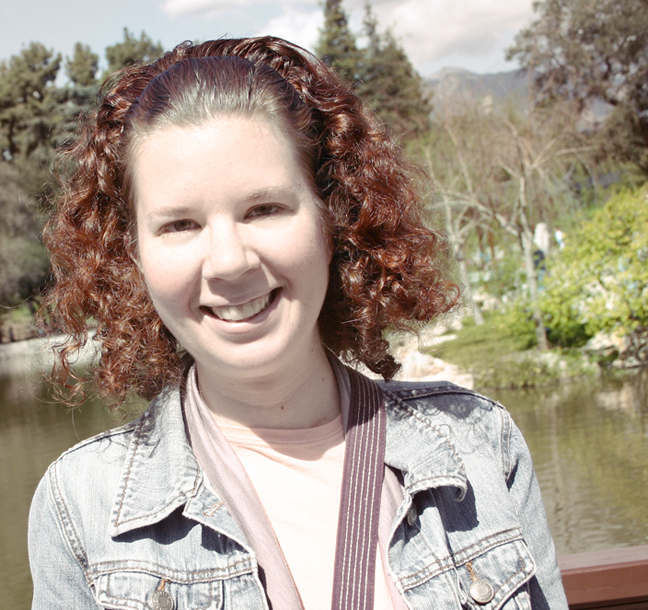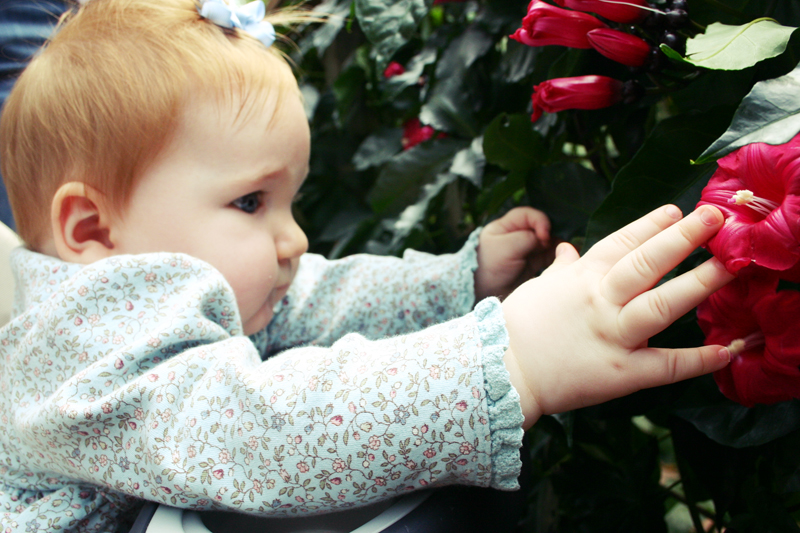In my last post, I expounded on my experience at an Orthodox church service, going into detail about the impactful way it met my senses, which is something I can truly appreciate about Orthodoxy. At the church I grew up in, years ago I specifically remember filling out a questionnaire for the prospect of renovating our sanctuary that had fallen into disuse (we "upgraded" to worshiping in the newly-built gym), and one of the questions asked how important a visually pleasing environment was to me. In my twenty year-old piety I marked (C) Not Very Important. Am I kidding me? I'm an artist! Like, the visual kind! How can this be anything
but very important to me? I credit, if you will, years of vaguely gnostic undertones in my church upbringing which exalts lofty spiritual feelings and attitudes while undermining the notion that worshiping God with our entire being doesn't really include striving to refine those things that send our sensory perceptions soaring, unless you count be-glittered banners hanging in front and a killer drum rhythm. That isn't to say the folks I worshiped with weren't very near and dear to me-- I will always consider them my beloved family, and my pastor was an excellent expositor of the Word. But my point here is, I've since discovered that worshiping God with our pupils, eardrums, nostrils, taste buds and nerve endings only add to my focus on, love for and experience of grace from my Savior. Obviously, the Orthodox church knew about this all along, but in the midst of church divisions, upheaval and crucibles, millions of Christians don't even know that we're "allowed" to worship through experiencing sensual beauty.
With that said, Mrs. Guffaruff, my inner Reformer, wouldn't let me slide through Saint Andrew's worship service without a weather-eye on their theology. Before I continue, let me say that between Aaron and myself, we have several dear friends who are Orthodox, and the questions I bring up are in no way a slight on their devoutness or earnestness in seeking to worship our Lord through the best of their understanding. My questions are also not intended to diminish the rich history, basic theology and traditions of the Orthodox church. In fact, I largely try to avoid railing on other denominations (though I will still frown on glitter and rock music in the sanctuary), however frustrating some of their practices may be, in light of Jesus' exhortation to love one another, so that our unity will point the world to Christ. I believe that no Christian denomination is perfect. Though our worship of a perfect God is imperfect, He still uses us to carry out His will, and we must continually humble and sober ourselves on that mystery.
I am 29 years old. The Orthodox church has roughly 2000 years on me. And I would simply concede to the wisdom of age if I didn't belong to the true church, which goes back to Adam and Eve, technically speaking; of those who worship God in spirit and truth. As St. Paul encouraged Timothy: "Don't let anyone look down on you because you are young, but set an example for the believers in speech, in conduct, in love, in faith and in purity," and as Luke commended the Bereans: "Now the Berean Jews were of more noble character than those in Thessalonica, for they received the message with great eagerness and examined the Scriptures every day to see if what Paul said was true," so I am encouraged to do the same.
There. I think I padded the eggshells to walk on easily enough, so let's have it, already.
During the "Kontakion for the Annunciation" (I'm really glad I kept the liturgy handout), they sang, "To thee, the Champion Leader, do I offer thanks of victory, O Theotokos, thou who has delivered me from terror; but as thou hast that power invincible, O Theotokos, thou alone can set me free: from all forms of danger free me and deliver me, that I may cry unto thee: 'Hail, O Bride without Bridegroom."
Question #1
It was my understanding that praying to the saints (or "intersession of the saints") was a person asking a saint to pray for them, as if the saint were to usher the prayer to God. So how can one thank the Theotokos for victory, deliverance and setting one free?
Question #2
What is the Theotokos freeing them from, exactly? The main theme of freedom put forth in Scripture is freedom from the wrath of God via the atonement made through Christ's death and resurrection. I am not adept in Orthodox hermeneutics, so what is the hymn referring to?
Question #3
Why is the Theotokos so prominent? I believe Mary is worthy of much more esteem and honor than the vast majority of protestants give her, but how did she become such a central figure?
Now on to Orthodoxy Class.
Aaron, Gwen and I walked into a little room packed with about fifteen people who were taking Orthodoxy Class in order to prepare them to enter into Orthodoxy. One of the subdeacons, Polycarp, a kindly older gent with a mass of wavy grey hair and a short, full beard, led the class. The topic for that day was how to properly prepare oneself to receive Holy Communion. It was a page and a half of guidelines consisting of how often, and when, one must fast; making sure that all fast days are observed, abstaining on Sundays from things that raise passions, like sex (because you shouldn't have intercourse while the bread/body and wine/blood, Christ, is in you), arguing, and wild entertainment. Saturday evenings should be calm and peaceful. You should also fast from food and water after midnight prior to Communion (unless you have medical issues, whereby you should consult the priest or Father). One must also keep up on going to confession (at least once a month), or else you should abstain from partaking for that week, but you really shouldn't skip more than a month, because if you miss four months in a row then you're out of Communion.
Now, I just have to take a time out and say that I love my husband. I adore his inquisitive spirit, thirst for knowledge and love for the Bible. In fact, they are so much a part of who he is that he will ask questions in a room full of strangers and a church authority no matter how much it may rock ones boat.
"Wait, are you serious?" Aaron blurted out with a chuckle of disbelief (I also love his tact). That was in response to the rule that a woman should avoid receiving Holy Communion if she is on her period. "Yes," said Polycarp, simply. A few others in the room affirmed the response with a little nod.
Question #4
Why?
Next, Aaron asked about the fasting before Communion. "It plain-as-day says in 1 Corinthians that if anyone is hungry they should eat at home first before coming to eat the Lord's Supper. So why do you fast if it says you should eat first?"
Crickets. Crickets. Crickets.
"Well," Polycarp replied, a little befuddled and slightly embarrassed, "I had never put those two things together."
One of the ladies in the class piped up. "It's more theological than that. You're reading it too literally."
Question #5
Isn't Paul's
directive to eat before coming the the Table of the Lord a very practical one? Why would Paul have said this if people weren't being selfish with the bread and wine?
Polycarp seemed to have been working this through his mind and finally said, "We do it in reverse order--we fast, then we eat. It's what we've always done. But you'll have to ask Father Josiah about that. He'll be here on Saturday to teach." he added. Another student spoke up, "Yeah, and when you find out the answer, let me know!" Everyone chuckled when he said this, and seemed content to let Father Josiah handle the question at some point, but it either didn't occur to anyone to ask this question before, or if it did, they kept it to themselves.
The topic then turned to withholding catechumens from Holy Communion until they have been christmated, the process normally taking a year.
"A
year? Are you kidding me?" exclaimed my subtle husband.
The same lady spoke up again, "I've been waiting to be christmated for a year and a half. I was 9 months into the process during Pascha last year, and I thought I was ready, but I hadn't hit the year mark yet, so I have to wait until this coming one." I couldn't tell if she seemed upset about this or proud of her fortitude. She made a reference to "the narrow path" and gestured a path upward with her hands, but
I'm not sure where I didn't want to know where she was going with this. I'm sure I was probably just projecting things, but she seemed to have a hungry look in her eyes. I'd be hungry, too, if I couldn't take Communion for as long as she.
"A Father or priest is responsible for a person's soul, and we want to make sure they are ready and don't eat to their own
judgment. And it's the way we've always done it." Polycarp explained. If I remember correctly, he explained that waiting a year held the same for adult baptism, which I think falls under the christmation umbrella for Christian converts. At that point, Aaron acknowledged the fact that such measures had to be taken in the early church to weed out enemies who were trying to infiltrate as posers, as well as to keep out those who merely wanted to join for the social benefit, such as during Constantine's reign, but then pointed out that the Bible says to believe and be baptized, just as promptly as the
eunuch was by Philip. In other words, as soon as is convenient.
Question #6
Are such measures really necessary nowadays, especially in America and all other countries free of extreme religious oppression?
We treaded down a few more rabbit trails, where many explanations included "because it's tradition," and, "Ask Father Josiah," as well as several agreements on topics, by and by.
But we walked away wondering what the validity of tradition was if its reason for implementation in the first place has never been revisited? And what does passing the buck to Father Josiah signify if nobody has thought to open their Bible to look into these matters themselves?
All in all, it was a very interesting Sunday with new insight and new questions about the Orthodox church. Aaron and I are going to vespers this week with his catechumen friend and his family in hopes of better grasping their reasons for entering into Orthodoxy. But for now I think I'll withhold forming an opinion until my questions have been answered by those who have a greater understanding of this ancient and mysterious middle eastern religion--and the Orthodox church, too.















